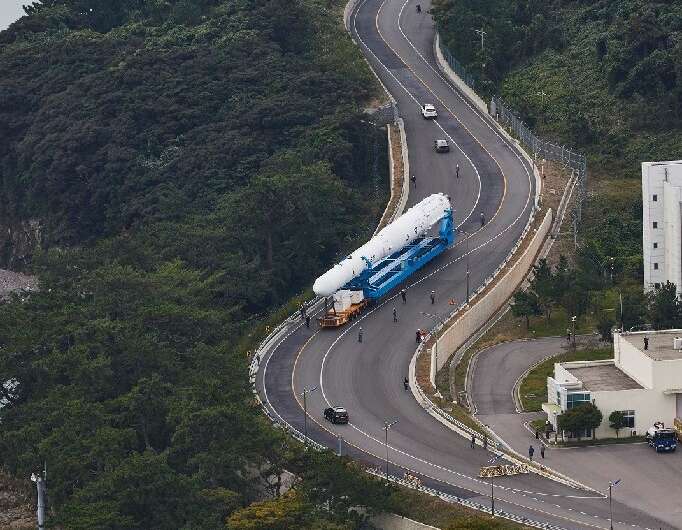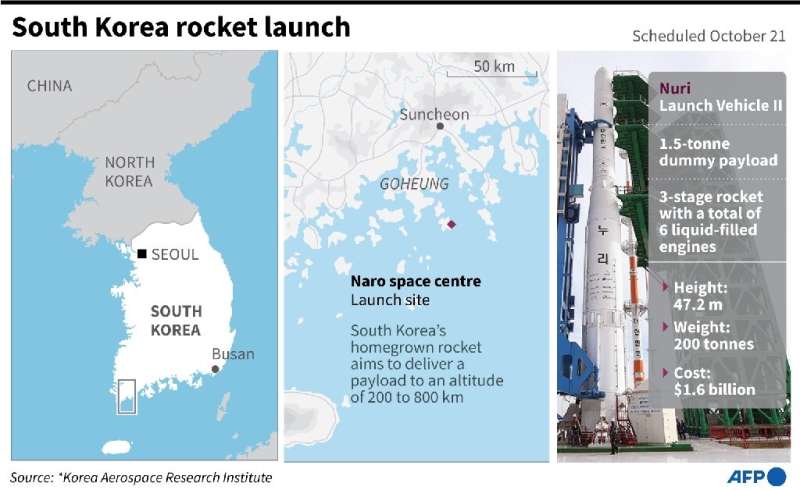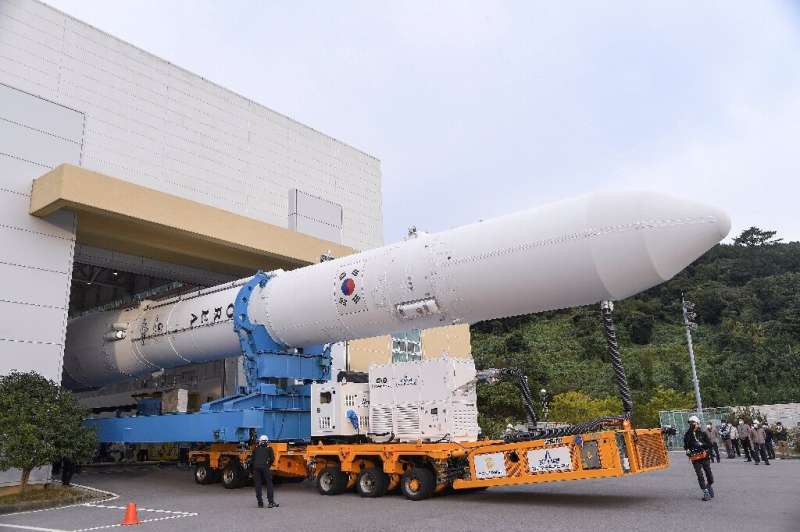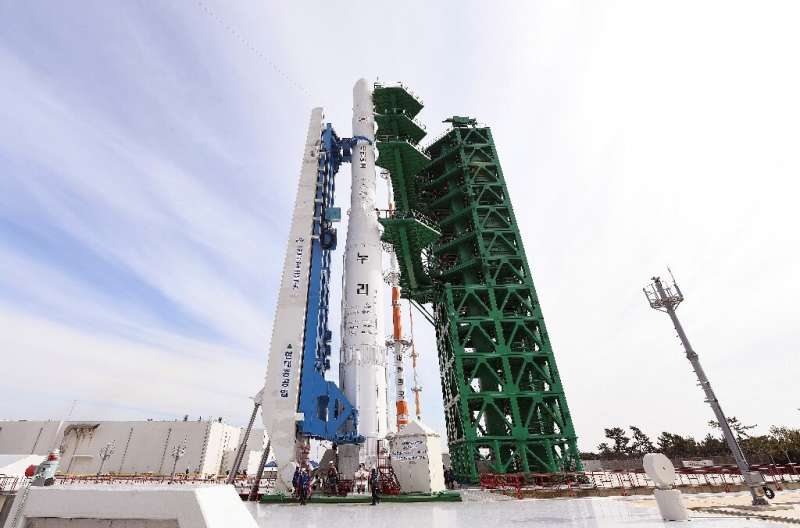Cheering and applause had earlier broken out in the control centre as the flight seemed to proceed according to plan.
South Korea has risen from the ashes of war to become the world's 12th-largest economy and a technologically advanced nation, home to the planet's biggest smartphone and memory chip maker, Samsung Electronics.

But it has lagged in the headline-making world of spaceflight, where the Soviet Union led the way with the first satellite launch in 1957, closely followed by the United States.
In Asia, China, Japan and India all have advanced space programmes, and the South's nuclear-armed neighbour North Korea was the most recent entrant to the club of countries with their own satellite launch capability.
Ballistic missiles and space rockets use similar technology and Pyongyang put a 300-kilogramme (660-pound) satellite into orbit in 2012 in what Western countries condemned as a disguised missile test.
Even now, only six nations—not including North Korea—have successfully launched a one-tonne payload on their own rockets.
The three-stage Nuri rocket has been a decade in development at a cost of 2 trillion won ($1.6 billion). It weighs 200 tonnes and is 47.2 metres (155 feet) long, fitted with a total of six liquid-fuelled engines.

Aiming for the Moon
But the South Korean space programme has a chequered record—its first two launches in 2009 and 2010, which in part used Russian technology, both ended in failure, the second one exploding two minutes into the flight and Seoul and Moscow blaming each other.
Eventually a 2013 launch succeeded, but still relied on a Russian-developed engine for its first stage.
The satellite launch business is increasingly the preserve of private companies, notably Elon Musk's SpaceX, whose clients include the US space agency NASA and the South Korean military.
But one expert said a successful Nuri launch could offer South Korea "infinite" potential.
"Rockets are the only means available to mankind to go out into space," Lee Sang-ryul, the director of the Korea Aerospace Research Institute, told local paper Chosun Biz ahead of the launch.

"Having such technology means we have fulfilled basic requirements to join this space exploration competition."
Thursday's mission was one step on an increasingly ambitious space programme for South Korea, which Moon previously said would seek to launch a lunar orbiter next year, after he inspected a Nuri engine test in March.
At the time, he said: "We will realise the dream of landing our probe on the Moon by 2030."
Explore further
© 2021 AFP



